Digital Currency Study Guide
Digital currency is a type of currency that is available only in digital or electronic form. It does not have a physical counterpart like paper money or coins. Digital currencies are decentralized and typically use cryptography for security.
Types of Digital Currency
There are several types of digital currency, including:
- Bitcoin: The first and most well-known digital currency, created in 2009 by an unknown person using the name Satoshi Nakamoto.
- Ethereum: A decentralized platform that enables smart contracts and decentralized applications (DApps) to be built and operated without any downtime, fraud, control, or interference from a third party.
- Ripple: A digital payment protocol that operates a peer-to-peer, decentralized, and open-source platform that allows for a seamless transfer of money in any form, whether USD, Yen, litecoin, or bitcoin.
- Litecoin: A peer-to-peer cryptocurrency and open-source software project released under the MIT/X11 license.
Advantages of Digital Currency
Digital currency offers several advantages, including:
- Security: Digital currencies use cryptographic techniques to secure transactions, making them highly secure and difficult to counterfeit.
- Accessibility: Digital currencies can be accessed and transferred electronically, making them convenient for online transactions.
- Decentralization: Most digital currencies operate on decentralized networks, meaning they are not controlled by any single authority or government.
- Lower transaction fees: Digital currency transactions often have lower fees compared to traditional financial systems.
Challenges of Digital Currency
Despite the advantages, digital currencies also face several challenges, including:
- Regulatory issues: Many governments and regulatory bodies are still grappling with how to regulate digital currencies, leading to uncertainty in the market.
- Volatility: Digital currencies are known for their price volatility, which can make them risky for investors.
- Security concerns: While digital currencies are secure, they are still vulnerable to hacking and cyber attacks.
Conclusion
Digital currency is an innovative form of currency that offers both advantages and challenges. As the technology continues to evolve, it will be interesting to see how digital currencies shape the future of finance and economics.
.◂Math Worksheets and Study Guides Seventh Grade. The Pythagorean Theorem
Study Guide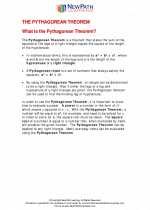 The Pythagorean Theorem
The Pythagorean Theorem  Study Guide
Study Guide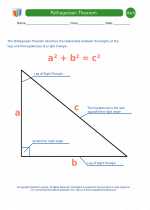 Pythagorean Theorem Definitions
Pythagorean Theorem Definitions  Worksheet/Answer key
Worksheet/Answer key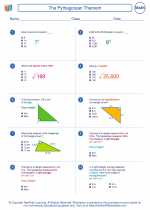 The Pythagorean Theorem
The Pythagorean Theorem  Worksheet/Answer key
Worksheet/Answer key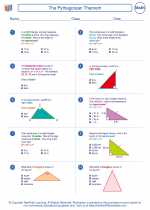 The Pythagorean Theorem
The Pythagorean Theorem  Worksheet/Answer key
Worksheet/Answer key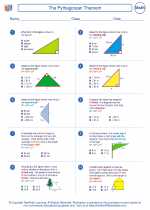 The Pythagorean Theorem
The Pythagorean Theorem  Worksheet/Answer key
Worksheet/Answer key The Pythagorean Theorem
The Pythagorean Theorem  Worksheet/Answer key
Worksheet/Answer key Pythagorean Theorem Distance Problems
Pythagorean Theorem Distance Problems  Worksheet/Answer key
Worksheet/Answer key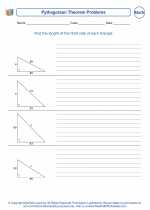 Pythagorean Theorem Problems
Pythagorean Theorem Problems  Worksheet/Answer key
Worksheet/Answer key Pythagorean Theorem Distance Problems
Pythagorean Theorem Distance Problems  Worksheet/Answer key
Worksheet/Answer key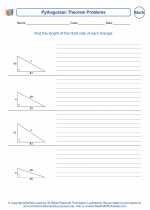 Pythagorean Theorem Problems
Pythagorean Theorem Problems  Worksheet/Answer key
Worksheet/Answer key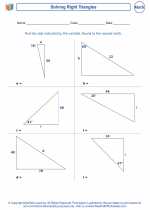 Solving Right Triangles
Solving Right Triangles  Worksheet/Answer key
Worksheet/Answer key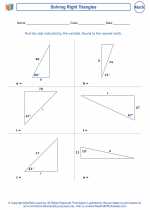 Solving Right Triangles
Solving Right Triangles 

 Study Guide
Study Guide
 Worksheet/Answer key
Worksheet/Answer key
 Worksheet/Answer key
Worksheet/Answer key
 Worksheet/Answer key
Worksheet/Answer key
 Worksheet/Answer key
Worksheet/Answer key
 Worksheet/Answer key
Worksheet/Answer key
 Worksheet/Answer key
Worksheet/Answer key
 Worksheet/Answer key
Worksheet/Answer key
 Worksheet/Answer key
Worksheet/Answer key
 Worksheet/Answer key
Worksheet/Answer key
 Worksheet/Answer key
Worksheet/Answer key

The resources above cover the following skills:
Geometry (NCTM)
Analyze characteristics and properties of two- and three-dimensional geometric shapes and develop mathematical arguments about geometric relationships.
Create and critique inductive and deductive arguments concerning geometric ideas and relationships, such as congruence, similarity, and the Pythagorean relationship.